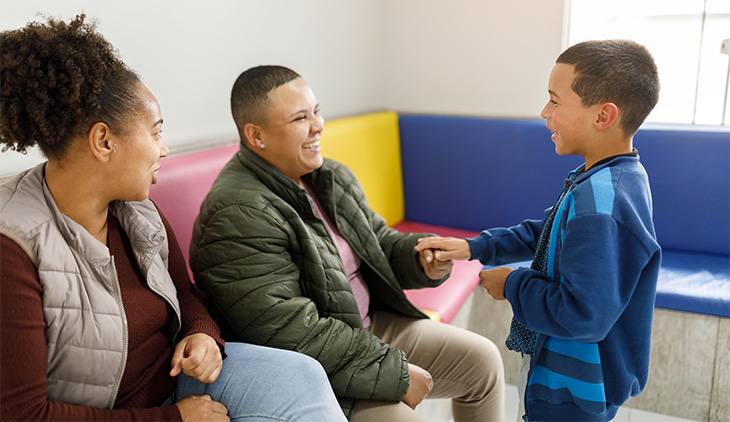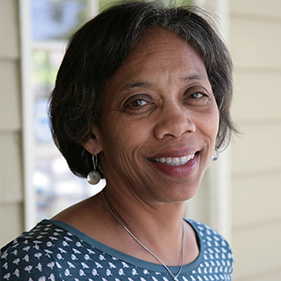ADHD FAQ: Symptoms, strategies to improve focus, medication shortages and more
An ADHD expert answers questions about this common condition
You may be familiar with some of the common symptoms: trouble focusing or finishing projects, talking a lot or fidgeting all the time. Attention-deficit/hyperactivity disorder (ADHD) is one of the most common neurodevelopmental conditions in kids — and for most people, it continues into adulthood.

The Centers for Disease Control and Prevention estimates that 6 million U.S. youth ages 3-17 have received a diagnosis of ADHD. In people with the condition, the brain works differently. Symptoms can also include daydreaming, losing things often, making careless mistakes and acting impulsively. ADHD can look different in different people. Some mainly have trouble paying attention, while others have trouble primarily with hyperactivity, and some have challenges with both.
J. Faye Dixon is a clinical professor in the Department of Psychiatry and Behavioral Sciences and a clinical psychologist at the UC Davis MIND Institute. She also co-directs the Attention, Impulsivity and Regulation research program, which is focused on ADHD. Dixon answers some common questions about this common condition.
There have been significant shortages of stimulant medications, a common treatment for people with ADHD, for nearly a year. What advice are you giving to families who are struggling to find these medications?
Certainly, in the absence of medications, it is important to ramp up behavioral supports. It is also very important to stay in touch with your primary care doctor or psychiatrist who is prescribing the medication and can advise on substitutions or generic alternatives.
Read more about how to cope with the stimulant medication shortage.

What behavioral supports should parents pursue for their children?
Families should always seek out all available resources to optimize their child’s functioning. This is different for every family. Some kids do just fine on a stimulant drug and little else. Other kids will need behavioral and academic strategies to function at their best. It’s important to look at the level of impairment and daily challenges to determine the package of services needed.
So much is age-specific, as many interventions work better at different age groups. For kids under 12, parent education and classes about ADHD can be most helpful. Organizational strategies are helpful for older elementary or middle school kids. As teens reach high school and young adulthood, cognitive behavioral therapy can provide a boost.
What are the top 5 most helpful strategies that you recommend to help families support a child with ADHD?
- A structured, orderly, predictable home routine
- Chore or activity charts and timers to remind kids to transition to a new task
- Predictable breaks around school and homework
- Behavioral reward systems – used appropriately (for example, creating a contract where a child can earn privileges for good behavior)
- Good communication with teacher and school leaders, as well as ensuring that the appropriate resources are available at school (such as help managing class materials and systems for organizing assignments).
It’s important to note that none of these will work all the time or forever! You must constantly change and adapt.

What are some of the more unexpected symptoms of ADHD that people often don’t realize are due to the condition?
Emotional dysregulation and irritability. However, it is very important to understand what other things might be causing this. Also, anxiety and other mental health challenges commonly co-occur with ADHD.
What advice do you have for those who struggle to parent their kids with ADHD?
It can be very helpful for parents to educate themselves about ADHD, so that they understand that displayed behavior is likely the best response the child, teen or young adult can muster in the moment (even if it not the desired behavior!). Learning how they, as parents, can intervene (e.g. offer a more adaptive tool, take a break) at such moments can help reframe the behavior for all involved. Parenting on the best day is hard! Parenting a youth with ADHD means the parent may need resources for themselves, whether it is therapy for themselves, learning how to de-stress, or joining a parent support group like CHADD (Children and Adults with ADHD).
If their child was recently diagnosed with ADHD, should a parent consider getting themselves evaluated, too?
ADHD does run in families. If parents are experiencing some of the same symptoms and these have been present since childhood, it might be helpful to explore this. They’ll want to ask themselves if they are having significant impairment across work, home and social settings in the areas of attention, impulsivity, disorganization and emotional dysregulation.
The process of adult ADHD evaluation is similar to that for kids. The challenge is that they’ll need a way to show that these symptoms were present by age 12. If a parent is not available, a detailed report card from elementary or middle school can be very helpful.
Some kids do just fine on a stimulant drug and little else. Other kids will need behavioral and academic strategies to function at their best. It’s important to look at the level of impairment and daily challenges to determine the package of services needed.”—J. Faye Dixon, clinical professor in the Department of Psychiatry and Behavioral Sciences and clinical psychologist at the UC Davis MIND Institute
There’s been an increase in adult ADHD diagnoses. Why do you think this is?
The major increase in diagnoses for adults is a combination of factors, including greater public awareness and providers who have a better background and training to look at adults who have attention challenges.
What do you wish people understood about ADHD that they don’t?
That these are kids, teens and adults who are “consistently inconsistent.” Their behavior can change day-by-day or situation-by-situation, even while the “core” symptoms stay the same.
Also, having ADHD allows people to more easily think outside the box. They may be able to hyperfocus on preferred tasks, be persistent, flexible and energetic and be willing to take risks.
ADHD Resources and related stories and videos
- National Resource Center on ADHD
- CHADD (Children and Adults with ADHD)All about ADHD (video featuring MIND Institute experts, including J. Faye Dixon)
- ADHD in Girls and Women: Developmental Perspectives, Key Impairments and Overcoming Stigma (Distinguished Lecturer Series video)
The UC Davis MIND Institute in Sacramento, Calif. is a unique, interdisciplinary research, clinical, and education center committed to deepening scientific understanding of autism and other neurodevelopmental conditions. It is a highly collaborative center, bringing together families, researchers, clinicians, community leaders and volunteers with the common goal of developing more personalized, equitable, and scientifically proven systems of support and intervention. The institute has major research efforts in autism, fragile X syndrome, chromosome 22q11.2 deletion syndrome, attention-deficit/hyperactivity disorder (ADHD) and Down syndrome. More information about the institute and its Distinguished Lecturer Series, including previous presentations in this series, is available on the Web at mindinstitute.ucdavis.edu.





